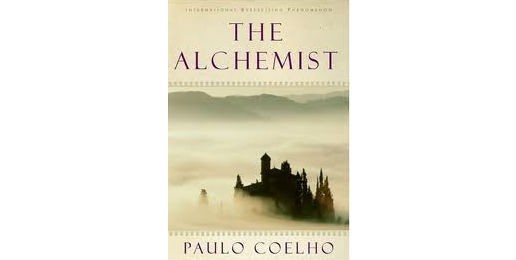
In Part 1 of this two-part article about a recent dust-up at Prairie Ridge High School in Crystal Lake, I discussed English teacher Christine Wascher’s decision to teach meditative techniques as a means of helping “students forge a deeper connection to the text.” The text she was teaching was Paul Coelho’s The Alchemist. As reported in a Trib Local article, Superintendent Jill Hawk said, “In this case, we had a teacher using a creative activity to engage her students in good literature.”
This statement confirms what I have previously written about the teaching of English: the beauty of teaching English is that teachers can always find ways to rationalize the teaching of whatever they want to teach, including controversial texts and activities that undermine traditional values. They just assert that these texts or activities cultivate higher order thinking skills, or critical thinking skills, or research skills, or the teaching of literary terms, or that they connect thematically to other texts being taught, or they help engage students, or they’re creative. We’re dupes. Virtually any piece of writing could be used to fulfill those purposes. English curricula, like the pants I prefer to wear on Thanksgiving, are delightfully expansive because justifications for it are marvelously elastic.
I bet someone as creative as Ms. Wascher could come up with other activities to help students forge a deep connection to The Alchemist, perhaps some that are less religious and alchemical than TM.
Educators are masters of rhetorical manipulation — or in many cases poor thinking. For example, when Hawk says “creative,” she likely means unusual, which doesn’t necessarily mean effective, appropriate, or substantive. And what she refers to as “good literature,” Joe Queenan described as “mind-numbing kitsch” in the New York Times “Sunday Book Review.”
A blogger wrote this piquant review of The Alchemist. I’m posting almost the entire review in the hope that parents will pay closer attention to the substandard caliber of literature that many English teachers are choosing, particularly contemporary texts:
The Alchemist is the bastard child of…the Self-Help And Actualization Movement (SHAM if you like, a movement exposed well in a recent book of the same title by author Steve Salerno, which I ironically just happened to read about a week before starting The Alchemist, and which I highly recommend you read instead of the Alchemist). It is SHAM cross-pollinated with Antoine de Saint Exupery’s The Little Prince and the fundamental plot structure of a particular story from Jalal al-Din Rumi’s Mathanawi entitled “In Baghdad, Dreaming of Cairo: In Cairo, Dreaming of Baghdad.” Unfortunately, it lacks both the charm and originality of The Little Prince, and while the simplicity of Rumi’s story had a certain appeal, that was way back in the 13th century when it was originally written. Here, today, in the 21st century, The Alchemist comes across as nothing more than a calculated but clumsy fable, largely plagiarized from other sources and overly reliant on cheap cliche, written to appeal to the sort of hazy quasi-mystical sense of self and “higher purpose” that many people seem to find so appealing.
When I say it is clumsy, I mean that only in a literary sense. What he lacks in literary skill, Coelho makes up for in an ability to read the mentality (and literacy level) of the modern consumer and gauge exactly what it is they want to hear about themselves. He is as good at it as Tony Robbins, Tommy Lasorda, Deeprak Chopra, and all the other peddlers of “personal empowerment” who have grown tremendously rich despite having just about nothing of actual substance to offer. He is a miserable writer, but a tremendous businessman, and has done a marvelous job of making himself a millionaire without offering anything of any real worth at all.
The story is thus – a nomadic shepherd boy in Spain has a dream about a mysterious treasure. He consults a fortune-teller about his dream, who tells him he needs to go to the pyramids in Egypt. He then conveniently bumps into a Wise Old Man (who we know is a Wise Old Man because he talks about Personal Legends), who randomly bequeaths upon him the Stones of Uma Thurman, which I guess vibrate with Force Feedback or something when you are near hidden treasure (Coelho may have cribbed a bit of this from the Legend of Zelda as well). He then goes on a long journey through Africa, encountering just about every fantasy, religious and bedtime-story cliche that has ever appeared in the world of literature. Eventually he winds up finding out that the treasure was right back where he started from, but of course, he meets the Love Of His Life along the way and all ends with sunshine and roses and fairy kisses for everyone involved.
As summarized by the back of the book jacket, the main message of the story is that “One’s only obligation in life is to pursue one’s Personal Legend”. Playing perfectly off the alienation, lack of spiritual and communal fulfillment, lack of real culture and tradition, and inherent selfishness and consumption-based acquisitiveness of the vast majority of his readers, Coelho delivers a message and a fable that tells you simply to do whatever you want to do – so long as you really, really-weely believe, the Universe will magically make it all work somehow (I suppose we can presume, then, that Ken Lay was merely following his Personal Legend when he bilked and defrauded everyone involved with Enron, and that perhaps Hitler was merely Following His Heart when he gassed legions of Jews as well).
Unexplained is whether selfish or amoral Personal Legends are granted by the Universe (the ultimate goal of the shepherd boy’s journey is in fact a pile of actual gold, leading one to wonder if Coelho is claiming that materialism and wealth is all that really matters in the end). And what happens when two Personal Legends directly conflict with or contradict each other? Also unexplained. How is the worthiness of a Personal Legend judged, and by who or what exactly? Coelho’s flimsy structure blows over like a paper shack when faced with any sort of serious scrutiny or critical examination. It was not designed to withstand intelligent investigation. It was designed for people who will accept whatever feel-good nonsense they read unquestioningly. It was designed for people who want to take whatever whim they are currently experiencing, be it the desire to Be An Actress or the desire to Start A Business, and invest it with some Deeper Mystical Meaning that also, conveniently, gives them license to act in a selfish and inconsiderate way in pursuit of their goal.
Amongst other gems of doublethink in the story, Coelho claims that “the universe protects drunks, the elderly and children” … well, except when it doesn’t, I guess, which happens all the time, such as the recent earthquake in China which did not seem to discriminate a bit in it’s victim-taking.
And if something goes wrong in your Quest to fulfill Your Personal Journey? Well, as with all other forms of SHAM, you failed to Follow Your Heart properly. It’s your fault. You need further study – may we suggest by starting with Warrior Of The Light: A Manual, Coelho’s “companion” work to the Alchemist?
The book would be easily dismissed as utter nonsense, and its adherents as getting what they deserve, if there were simply not so many of them, and if they were not so rabid and cult-like in their worship of the book. Indeed, this book seems to have become a sort of new quasi-religion for many people. Check out the Amazon reviews for it – not the best source of quality literary criticism, I grant you, but an excellent place to take the general pulse of how the average reader is responding to a work. The positive reviews, which outweigh the negative by nearly one thousand, often contain some variant of “If you don’t like this book, or are critical of it, it’s because you JUST DON’T GET IT.” I would offer a counter-argument. If you like this book, it is because you do not get it. You are apparently not equipped to realize you are being thoroughly snowjobbed…. note that the author professes to be a “black magician” in the tradition of that other famous Latin-American huckster author, Carlos Castaneda.
The Alchemist’s ultimate contribution to world culture, ultimately, is not literary. It is that it serves as an exemplary sign of how overwhelmingly many people there are who are poorly read, who are incapable of even basic critical thought, and how easy it is for even a clumsy snake-oil salesman to become a “guru” in this idiotic and under-educated era.
This incident raises the question, should parents and other taxpayers have any input on curricular choices? Many teachers firmly believe they should not. Certainly, parents should not dictate curricula, but should they have no input? Some argue that taxpayers have input through the election of school board members, but is that accurate?
School boards have virtually nothing to do with curricula. It’s teachers, department chairs, and curriculum directors who decide curricula. But, some counter, taxpayers hire school board members who then hire teachers. The reality, however, is that school boards for the most part merely rubber stamp the hiring recommendations of department chairs.
To summarize, taxpayers have the ability to hire school board members who have nothing to do with curricula and virtually nothing to do with hiring, therefore, taxpayers have virtually nothing to say about the most important aspects of education. The only influence taxpayers have on curricula is remote to non-existent.
So, how can taxpayers ensure that teachers promote shared community values or prevent activist teachers from using curricula, taxpayer money, and their coveted autonomy to try to shape the moral and political beliefs of students? And how can taxpayers ensure that teachers are choosing literature for its literary value rather than whether it treats race, gender, class, homosexuality, and “spirituality” in politically correct ways? I would argue that the politically driven, intellectually vacuous, and morally bankrupt leadership of many contemporary educators who view themselves as “agents of change” necessitates a diminution of their autonomy. Because academic ideologues have exploited their roles as public employees and lost sight of their roles as public servants, they should lose the autonomy they have arrogantly abused.
One way to prevent teachers from exploiting their access to public money and other people’s children is to establish three district policies regarding controversial topics:
- Curricular parity policy: such policy would require teachers who choose to teach resources that address controversial topics (e.g., feminism, abortion, premarital sex, reproductive technologies, homosexuality, Gender Identity Disorder, climate change, Critical Race Theory, and “social justice”) to spend equal time having students study resources that present opposing, competing, or dissenting ideas.
- Staff/professional development parity policy: such policy would require that if staff development opportunities are provided in which resources on controversial topics are studied (e.g., “enumerated” anti-bullying curricula, “teaching for social justice,” Critical Race Theory, or Critical Pedagogy), equivalent staff development opportunities must be provided in which opposing, competing, or dissenting views are studied.
- Professionalism policy for teachers: such policy would explicitly prohibit teachers from expressing their moral, political, or philosophical views on controversial topics. This policy will likely be met with vociferous opposition primarily from teachers who hold “progressive” views and see themselves as “agents of change.” Most conservative teachers would welcome such policy.
The good news is that thanks to the vigilance and courage of two wise fathers, neither the Vagina Dance nor meditation techniques are being taught at Prairie Ridge High School.

























